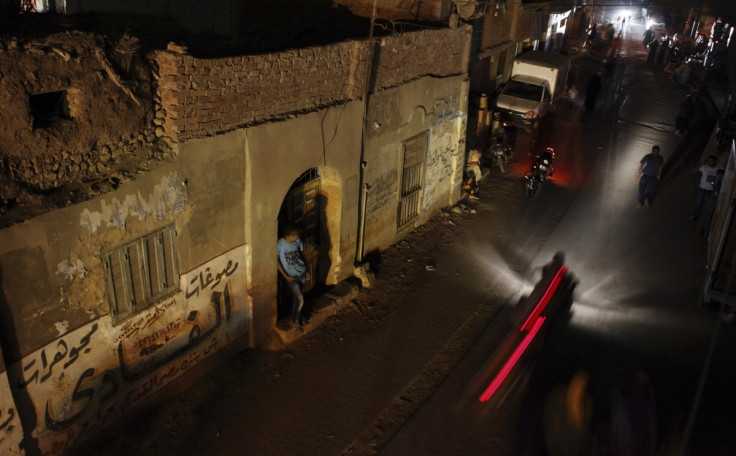Egypt Energy Crisis Worsens as Summer Looms

Egypt's energy crisis is simmering again.
Blackouts on Monday and Tuesday this week cut off whole neighbourhoods for up to five times per day.
Two senior electricity officials held a press conference in response to the latest failures.
Gaber El-Desouki, chairman of the Egyptian Electricity Holding Company, said that the electric grid had been missing between 3000 and 4000 megawatts (Mw) per day on Monday and Tuesday this week, when the worst blackouts occurred.
Over the past two weeks, Egypt's electricity grid had been coming up an average of between 1000 -1 2000 Mw short, he said.
He blamed the blackouts on power plant units being down for maintenance and said some had run out of fuel.
The worsening blackout could be an ominous sign as the summer approaches. While national consumption is currently peaking around 22,000 Mw per month, the sweltering summer months usually see an average of 34,000 Mw used each month.
The electric ministry said last month that the country is facing a 7,000 Mw shortfall in supply this summer.
Dr Aktham Abou-Elella, undersecretary of the Ministry of Electricity and Energy, told IBTimes in March that the petroleum ministry needed to import more natural gas, as well as fuel oils mazut and solar, in order to keep the lights on.
"As you see we cut electricity now in the winter season, and if we continue this policy maybe this means big problems in summer," he said.
The blackouts became an explosive issue under the last government, headed by the Muslim Brotherhood's Mohamed Morsi. Widespread anger over the power shortages exploded in the form of protests on the streets of towns and cities across the country last summer and ended with the country's first elected President being ousted from power.
While the current interim government is yet to face anything like the discontent with its predecessor, whoever wins May's presidential elections could face an energy crisis and widespread public anger if the shortfalls aren't addressed.
Before the 2011 uprising that sparked a series of political upheavals in the country, Egypt was a gas exporter. However, a period of political and economic uncertainty has hampered Egypt's gas production and it no longer produces enough for its own population, let alone its export market.
Various online campaigns have been launched this week, calling for Egyptians to stop paying their electricity bills if services are continually interrupted.
Talks between Egypt and Russia resumed last week over a free trade zone between the two countries. Cairo is looking to import liquefied natural gas from Moscow, while the talks also explored the possibility of a nuclear deal.
© Copyright IBTimes 2025. All rights reserved.






















